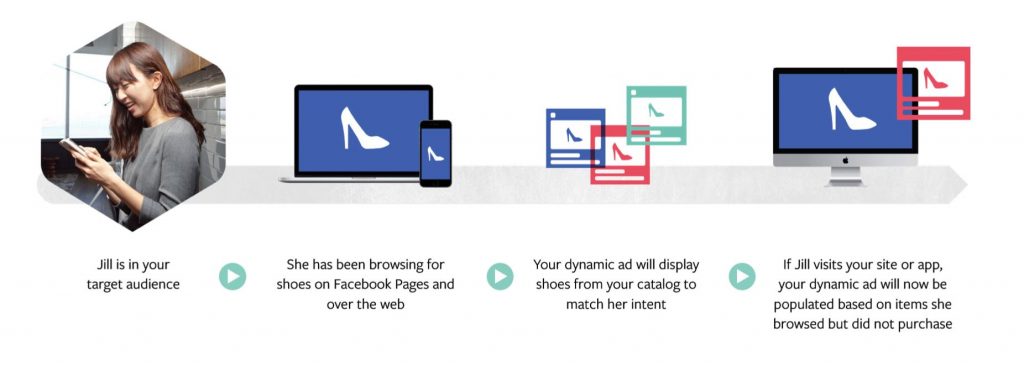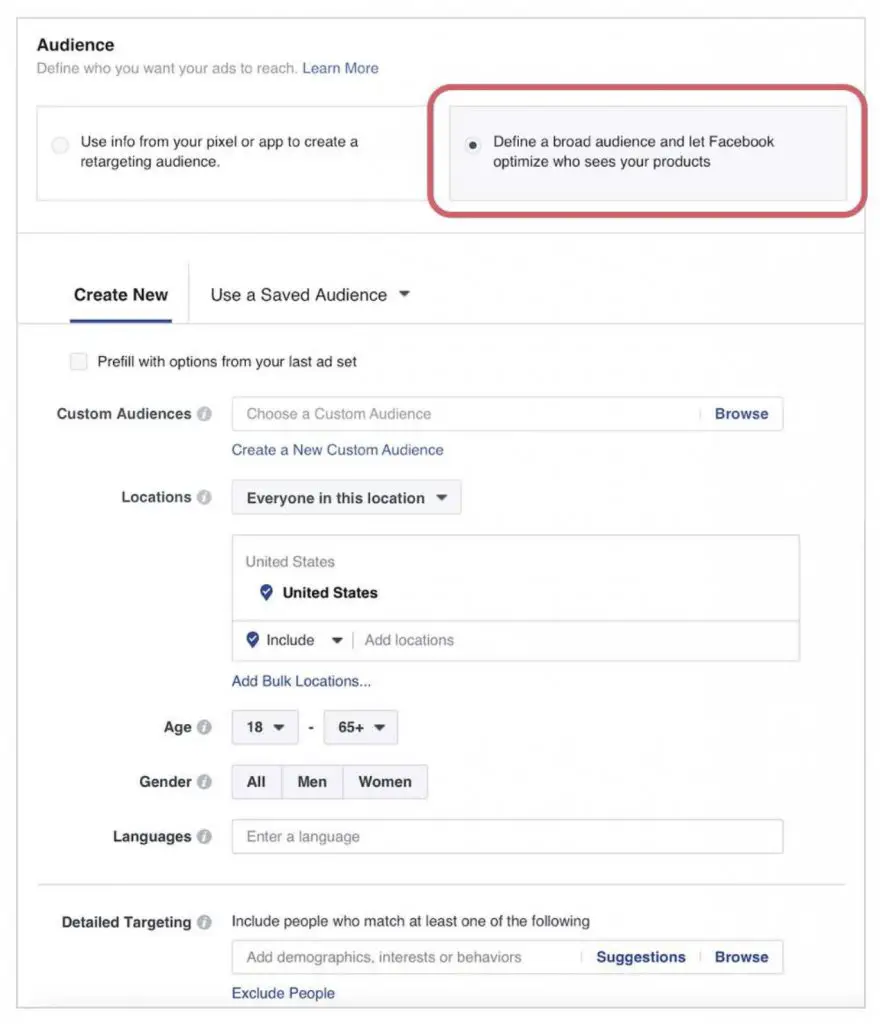Facebook now allows advertisers to broaden their audience to all users – not just those who visited their website or mobile app.
Dynamic ads were launched as a way for advertisers to promote items from their product catalogs, to relevant people who visited their website or mobile app. The ads have been available to advertisers for some time now, and Facebook has been constantly improving them with new features over time.
In May of last year, Instagram was added as a placement – after having already featured over 2.5 billion products. In September it added retail and store visits optimisation to the mix, and later in 2016, it also added the mobile app installs optimisation.
Now, Facebook is starting to allow advertisers to target broader audiences – instead of just those people who have visited an advertiser’s website or mobile app.

The update will allow you to expand the reach of your dynamic ads campaigns to many more people beyond your retargeting audience, by selecting broader demographic or behavioural targeting options. The new targeting options are rolling out currently, so you may not see them yet.
If you have the new options, you should be able to see two different audience targeting selections as seen in the screenshot below – the ability to use info from a pixel or app to create a retargeting audience, or to define a broad audience and allow Facebook to optimise who actually sees the ads.

The new feature comes as a breath of fresh air for advertisers who may have found their dynamic ads lacking in terms of targeting. Already, many are finding the update very valuable, with Facebook providing two success stories to prove it:
For example, an eCommerce company was able to reach 3 times their audience size by scaling dynamic ads to new audiences, while still maintaining their ROAS. Also, an omni-channel retailer saw that their cost per click improved 43% as they were able to reach audiences beyond their website or app visitors.
If you would like to use dynamic ads, you should remember that you will need to upload your online product catalog to Business Manager or through a third-party partner. Also, it is imperative that you implement the Facebook pixel on your website or Facebook SDK, as well as App Events in your mobile app.
[box]Read more: Here’s How To Use Animated GIFs In Your Facebook Ads[/box]
